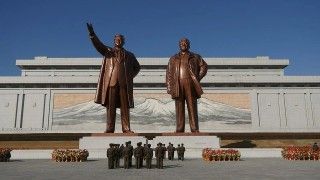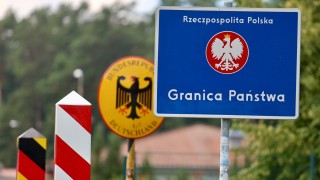- WIADOMOŚCI
- ANALIZA
Law and Justice Party - Ideas For Energy: No Russian Gas Or Oil, Only Polish Coal And Gas
PM Beata Szydło’s exposé, along with the statements made by the parties in power, suggest that Poland is willing to – in a long term perspective – base its energy mix on coal and gas. The authorities are also willing to resign from importing the fuels from Russia.
Second gas terminal, Baltic Pipe and diminished significance of Gazprom
The statement made by PM Beata Szydło, regarding the construction works connected to the second Polish LNG Terminal in Gdansk (it may come in a form of a newly procured Floating Gas Storage and Regasification Unit, similar to the one which is being used by the Lithuanians) seems not to have been accidental. Moreover, Szydło also mentioned expansion of the Świnoujscie Gas Terminal in her inauguration speech. Polish politicians of the Law and Justice party also stress that there is a great need to realize the Baltic Pipe initiative, which was suspended by the government led by Leszek Miller. The aim of that initiative originally was to establish a connection, thanks to which gas from Norway would be transferred to Poland via Denmark and Baltic. The above issues seem to be correlated. One may interpret this situation, assuming that the new government has a clear plan of development, regarding the gas sector. We cannot rule out a situation, in which there is no space for the Russian Gazprom company, in the vision, which is being considered by the new Polish cabinet. The German dimension’s meaning is going to be diminished, due to emergence of the information, according to which the Germans, should a gas crisis occur, are going to treat filling “their” gas storage facilities with utmost priority. “Their” - because these gas storage facilities are, in fact, Russian, if one takes the asset exchange between the Gazprom and BASF companies into account. The process, the aim of which would be to send the resource to Poland, is going to be of secondary priority. If the plans, the aim of which is to become completely independent from the Russian gas (literally) are going to be actually implemented, then the statements publicly made by the Law and Justice officials are going to be comprehensible, as they suggest that there is no sense to pay the Russians for the gas and for the crude oil, since this money supports the Russian defence budget, and, in consequence, contributes to the destabilization process of the Central and Eastern Europe. As we see, the realistic steps taken within the area of the natural gas, would be smoothly connected to the Ukrainian issue. Any controversies regarding the financial profitability of such initiative, including the theses suggesting that Gazprom-supplied gas is cheaper than LNG, and that LNG terminals would turn out to be unprofitable, would be neutralized in the public sphere by the geopolitical spin.
Saudi and Iranian crude oil instead of the Russian resources
What’s interesting, similar steps could be taken in the crude oil area. However, we do not know the scope, within which the new government could use the Saudi and Iranian factors, within the framework of reorganizing the crude oil supply to Poland. Nevertheless, when it comes to the current context of information management regarding such process, now is a perfect time to take the aforementioned steps. We may, with a high level of confidence, state that “zero gas and crude oil from Russia” tagline, even in the light of high cost of such policy for the Polish economy, would be approved by the general public. Thus, an interesting synergy would be created, the energy concepts created by Law and Justice – so far in the realm of science-fiction – could be realistically implemented, without any impact on the image of the governing party. Of course, not without any limitations, since economic effect of such actions is quite unpredictable.
Renegotiating the climate arrangements, another 40 years for the Polish coal
The announcements made by the new government, within the scope of renegotiating the climate commitments that had been approved by the former PM Ewa Kopacz, seem to be quite interesting, especially if coupled with the above considerations. If the statements related to renegotiation are placed within a single context, together with the plans pertaining the gas sector, general resistance towards the renewable energy sources on the part of Law and Justice, and a statement of the Head of the Standing Committee of the Council of Ministers, Henryk Kowalczyk, who announced that creating a Polish nuclear powerplant would be unprofitable, we are going to come to a conclusion that PM Szydło’s plan is to base the Polish energy mix on gas and coal. This is the reason why the Exposé contained a fragment, giving a strategic meaning to lignite (the previous government was willing to cease production of lignite and continue to use coal, which would have an impact on decreased contribution of the “black gold” in the Polish energy mix). For the same reason, Piotr Naimski recently stated at the Polish Parliament, that there is a need to create new carbon-driven power stations, using the Polish resource from Silesia, and that this is a plan which would not cover a single term of office, since its implementation is going to take 40 years.
Quick implementation of changes in the energy sector may be dangerous
Contrary to the gas and crude oil areas, the information management within the scope of the mining sector (if it exists) is going to be quite difficult. Changes within that scope would result in a confrontation with the European Union. In a wider perspective, we are going to face a dangerous situation, in which, on one hand, the Polish government is going to be in a conflict with Russia (Gazprom), and on the other, it is going to be in a struggle against Brussels (renegotiating the climate arrangements). Moreover, to make things worse, the climate-gas dispute is going to penetrate the relationship with the Germans who – with a high motivation – would like to export the German green technology (Energiewende) to Poland. Berlin is going to react negatively to Warsaw’s usage of the Volkswagen gate as an argument in the CO2 emissions conflict. Nord Stream 2 aspect seems to be equally important. PM Szydło’s cabinet is willing to fight against this initiative with the use of actions accusing the Germans of blocking the development of the gas terminals located in Świnoujście and Stettin (here, we are referring to the statement made by Minister Gróbarczyk).
Crisis management – coal first, crude oil and gas market later
It seems that the new Polish government, even though some tempting solutions exists within the scope of PR policy, shall not start fight on every front at once. This would be emphasized by the fact that we have no idea of the economic implications that may arise, after the whole economy is shifted to use the LNG coming from the terminals, and crude oil, supplied by the Middle East (I am assuming that this type of plans exists, which is proven by the statements made by those in power). At the beginning, PM Szydlo shall focus on solving the problems prevalent in the mining industry, optimizing the existing gas terminal financially and preparing the crude-oil processing facilities (adopting the tanks, enhancing the options within the scope of separation of a variety of the crude oil types, making the Pomerania pipeline usable, coordinating the actions made by Lotos and Orlen) for diversification of the resource supplies. It may turn out that solely the actions above, are going to take the whole term of office. Thus, there is no reason to announce the long-term plans, the aim of which is to reconstruct the whole sector, since this may create a counter-reaction of our current partners – Germany and Russia. It would be better to tread lightly, systematically, without any unnecessary noise. In the meantime, it may turn out that the initial calculations require some adjustments. Implementation of an adjustment would be simpler than the steps which would have to be taken in the image sphere, in order to save the relations with Berlin or Moscow at any cost.














